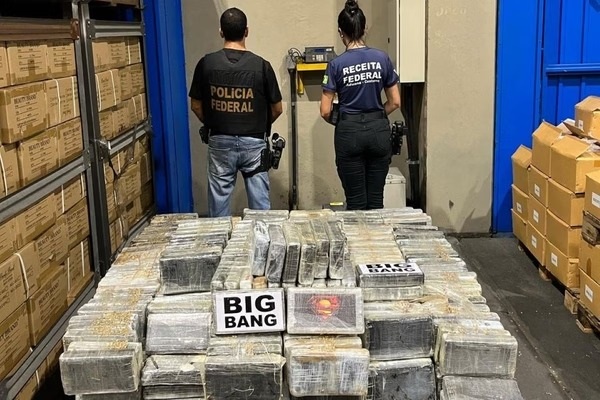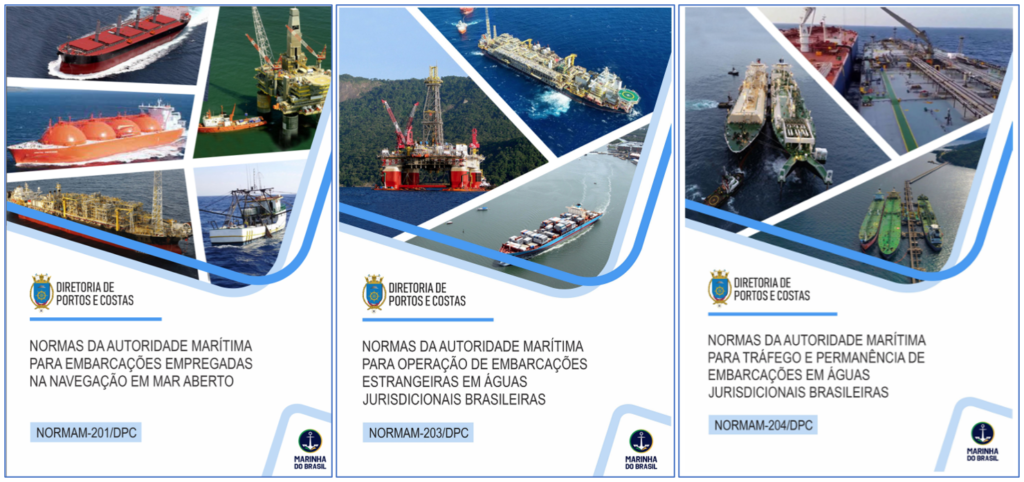
Increase in cocaine seizures in Brazil
read more

Bulkers and combination carriers loading high-density bulk cargoes in Brazil must undergo a vetting regime following maritime authority standards
In the mid-1990s, a significant number of incidents and casualties involving ageing bulk carriers in Brazil led the maritime authority, through the Navy’s Directorate of Ports and Coasts (DPC), to implement stringent requirements for the operation of bulkers intended to load high-density commodities at Brazilian ports, including documentary and physical structural inspections. These strict controls are still in place today, albeit with some modifications.
Vessels that meet the requirements are issued a Declaracao de Vistoria de Condicao – DVC (statement of condition survey), colloquially known as a “DPC certificate”. The DVC is one of the mandatory documents for the maritime authority to allow ships to dock and load heavy bulk cargoes in Brazil.
All bulk carriers and combined ore-oil or ore-bulk-oil (OBO) carriers aged 18 years or older from the keel laid, calling at Brazilian ports to load solid bulk commodities with specific weight equal to or greater than 1.78 t/m3, such as iron ore, bauxite, manganese and phosphate, are required to pass a condition survey. This survey is conducted by a classification society other than the one rating the vessel in her class or a DPC-accredited certification company.
Bulkers and combined carriers of any age whose total heavy bulk load does not exceed 30% of their deadweight tonnage are exempt from this survey.
The requirement is provided for and regulated across different norms issued by the Brazilian Navy through the DPC, namely:

The above standards can be downloaded for free from the DPC website, but unfortunately, English versions are not available.
The application for the condition survey is submitted to the maritime authority with jurisdiction over the port or anchorage where the survey is to be carried out and to the DPC headquarters in Rio de Janeiro through a local representative of the shipowners, usually the local shipping agents.
In addition to the IMO-related certificates and other mandatory documents under the maritime authority’s standards, the applicant must submit a cargo information declaration, including the specific weight of the cargo, stowage plan and stress calculation to ensure that the shear forces and bending moments to act upon the ship during loading will be within the limits stipulated by the vessel’s classification society.
The shipowner or its representative is responsible for engaging and paying the fees of a surveyor from a classification society (other than the one classing the vessel) or a certification company accredited by the DPC.
The inspection to obtain the DVC can be carried out in daylight in any Brazilian port, regardless of whether it is the port of loading. The ship must be anchored in sheltered waters or safely moored alongside a berth, fully unloaded, deballasted, gas-freed, and with the ballast tanks ventilated and ready for inspection, ensuring compliance with the applicable safety measures.
The condition survey consists of three key aspects:
In addition to transportation and ultrasonic thickness measurement (UTM) costs and fees charged by the shipping agency and the inspector, DPC charges a condition survey validation fee of BRL 572, payable through a federal tax collection bank slip.
Upon completing a condition survey, the accredited surveyor issues a Statement of Condition Survey (DVC), as per the attached specimen, confirming the ship’s suitability to load high-density cargo in Brazil. Based on the surveyor’s findings, the DPC authorises the vessel to load solid bulks with specific weights greater than 1.78 t/m3 for one year.
The shipowner or its representative is responsible for submitting the DVC, along with the full survey report and relevant documentation, to the local maritime authority and the DPC by e-mail or uploading the documentary information to the Paperless Port System (PSP), a single-window electronic system that provides information on vessel status and clearance for loading to relevant authorities and stakeholders. The DPC website maintains publicly available information on bulk carriers that have (or have not) passed condition surveys, along with their respective DVC validity.
DPC-authorised bulk carriers must have the DVC on board whenever they load solid bulk commodities heavier than 1.78 t/m3 in national ports, regardless of the information on the vessel’s status being available on the PSP system and the DPC website.
Even if the surveyor considers the vessel suitable for loading, any identified conditions that require attention, such as holes, cracks, buckling, thinning, or loss of watertightness, must be noted in the DVC as repairs to be carried out for follow-up.
If the surveyor finds damage or deficiencies that require in-depth analysis or major structural repairs, the ship will not receive approval for loading, and the maritime authority will flag it in the PSP system as “prevented from loading”. In such instances, the class surveyor must be engaged to recommend and oversee the necessary repairs. Subsequently, the surveyor should report to the DPC to confirm whether the observed deficiencies have been remedied and attest to the vessel’s safe condition to carry heavy loads.
The Statement of Condition Survey (DVC) remains valid for one year from the inspection date. After this period, the vessel must undergo a new condition survey to be allowed to load heavy bulk cargo. Even with a valid DVC, she must remain in class and be covered by P&I insurance throughout her stay in Brazil in order to receive permission from the maritime authority for cargo operations.
Please read our disclaimer.
Related topics:
Rua Barão de Cotegipe, 443 - Sala 610 - 96200-290 - Rio Grande/RS - Brazil
Telephone +55 53 3233 1500
proinde.riogrande@proinde.com.br
Rua Itororó, 3 - 3rd floor
11010-071 - Santos, SP - Brazil
Telephone +55 13 4009 9550
proinde@proinde.com.br
Av. Rio Branco, 45 - sala 2402
20090-003 - Rio de Janeiro, RJ - Brazil
Telephone +55 21 2253 6145
proinde.rio@proinde.com.br
Rua Professor Elpidio Pimentel, 320 sala 401 - 29065-060 – Vitoria, ES – Brazil
Telephone: +55 27 3337 1178
proinde.vitoria@proinde.com.br
Rua Miguel Calmon, 19 - sala 702 - 40015-010 – Salvador, BA – Brazil
Telephone: +55 71 3242 3384
proinde.salvador@proinde.com.br
Av. Visconde de Jequitinhonha, 209 - sala 402 - 51021-190 - Recife, PE - Brazil
Telephone +55 81 3328 6414
proinde.recife@proinde.com.br
Rua Osvaldo Cruz, 01, Sala 1408
60125-150 – Fortaleza-CE – Brazil
Telephone +55 85 3099 4068
proinde.fortaleza@proinde.com.br
Tv. Joaquim Furtado, Quadra 314, Lote 01, Sala 206 - 68447-000 – Barcarena, PA – Brazil
Telephone +55 91 99393 4252
proinde.belem@proinde.com.br
Av. Dr. Theomario Pinto da Costa, 811 - sala 204 - 69050-055 - Manaus, AM - Brazil
Telephone +55 92 3307-0653
proinde.manaus@proinde.com.br
Rua dos Azulões, Sala 111 - Edifício Office Tower - 65075-060 - São Luis, MA - Brazil
Telephone +55 98 99101-2939
proinde.belem@proinde.com.br